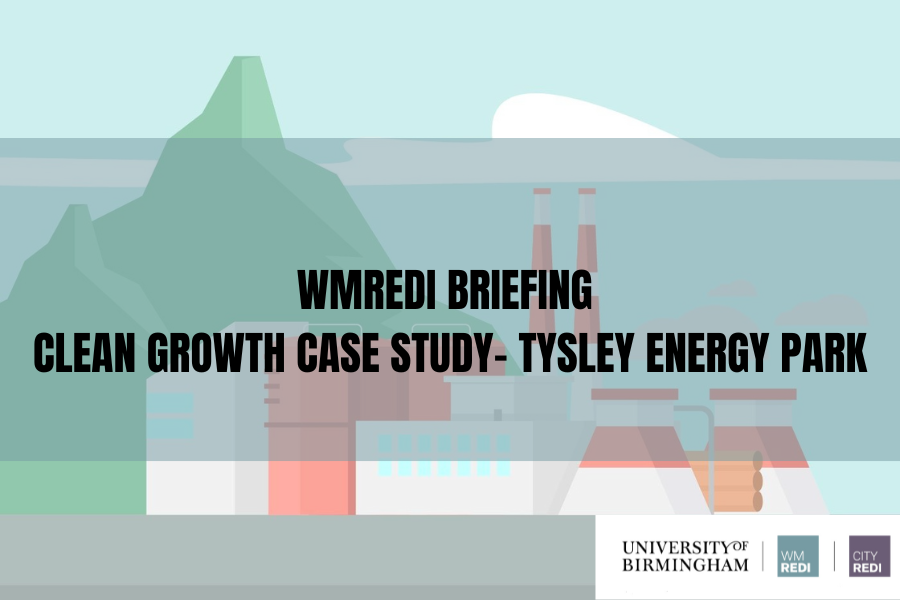
In this policy briefing, Dr Juliane Schwarz examines the value and function of public funding by the Greater Birmingham and Solihull Local Enterprise Partnership (GBSLEP) into clean growth initiatives, such as Tyseley Energy Park (TEP), and how this supports clean growth in the West Midlands to become a net zero carbon economy by 2041.
This case study report describes the background of TEP and its development, its significance for energy innovation and clean growth, the impact of public funding by the GBSLEP and lessons from the case of GBSLEP funding at TEP for clean growth.
It is based on desk research, analysis of GBSLEP internal documents and financial and monitoring data interviews with main stakeholders, including representatives from Tyseley Energy Park (TEP), Birmingham Energy Innovation Centre (BEIC), Birmingham Centre for Energy Storage (BCES) and GPSLEP case champion.
Discussing the five phases of the briefing, the brief describes the layout of the park and its future growth and development.
Looking into the importance of Tyseley Energy Park for energy innovation and clean growth, and the significance of public investment by Greater Birmingham and Solihull local enterprise partnerships, Julianne looks at what they learned and what worked within this project.
Download the Policy Briefing here
This blog was written by Dr Juliane Schwarz , City-REDI / WMREDI, University of Birmingham.
Disclaimer:
The views expressed in this analysis post are those of the authors and not necessarily those of City-REDI or the University of Birmingham.
